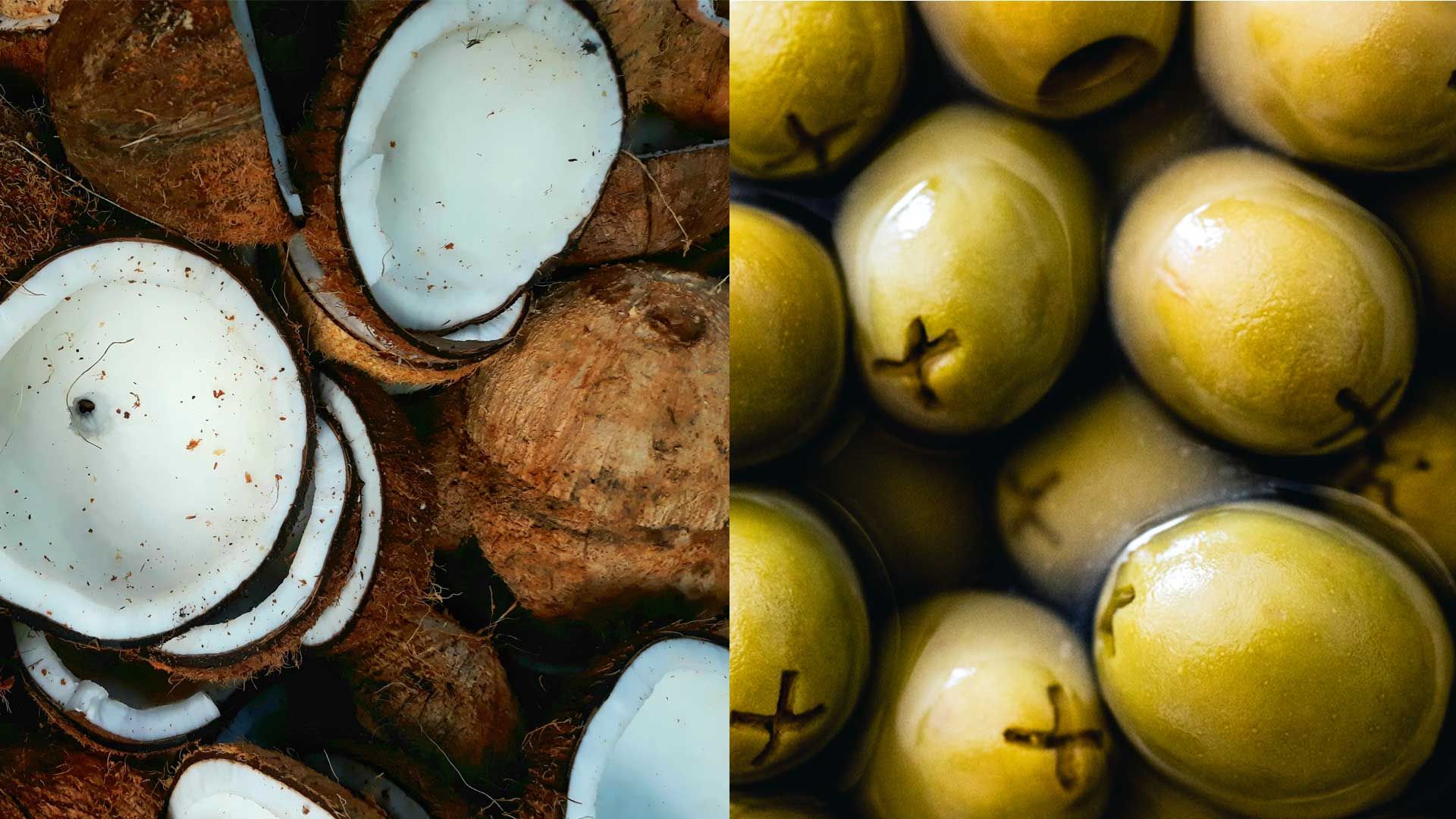While olive oil is a longtime staple fat in the ultra-popular, heart-healthy Mediterranean diet, coconut oil has been hot in celeb circles for a decade or so. Not only is it used for cooking, but the oil-pulling trend (where the likes of Gwyneth Paltrow and others swished coconut oil in their mouths to clean their teeth) was all the rage a few years ago, and stars like Heidi Klum have long touted the oil’s benefits when it comes to maintaining shiny locks and flawless skin. But while it might work wonders on your tresses, is coconut oil the better, healthier choice when it comes to cooking, sauteing or making dressings?
 Fernando Poluakan/Getty Images (coconut); mrs/Getty Images (olive oil)
Fernando Poluakan/Getty Images (coconut); mrs/Getty Images (olive oil)
Vancouver-based registered dietitian Jessica Begg doesn’t think so. “The issue between these two oils is that coconut oil has saturated fats and olive oil has omega-3s. Saturated fats contribute to the increase of our LDL (bad) cholesterol.” According to the journal Circulation, coconut oil results in “significantly higher LDL-cholesterol than nontropical vegetable oils.” That said, this variety does contain medium-chain triglycerides (MCTs), which some research says has potential for weight-loss benefits.
Olive oil, on the other hand, is high in monounsaturated fatty acids, which help to lower your bad cholesterol. “They also contain omega-3s, which lower our LDL cholesterol and has shown to increase our HDL (healthy) cholesterol,” says Begg. This variety has a slew of health benefits, thanks to its polyphenols, which are said to have anti-inflammatory and antioxidant properties. Research shows it can lower the risk of cardiovascular disease and some cancers, and one study published last year in JAMA Network Open also found olive oil is good for our brain health – consuming it is associated with lowering the risk of dementia.
“Plant sources of saturated fat don’t impact our bad cholesterol as much as animal sources, like what’s found in meat and dairy, but I still think coconut oil should be used with care,” she says. While coconut oil offers a distinct flavour, it’s best for occasional use – save it for when you’re making curries or use it in muffins or brownies when baking instead of butter. Stick to olive oil for most of your cooking, when making dressings, fish dishes, pasta sauces, and for meals that require frying or sauteing. “I would use coconut oil in recipes that call for it, but I wouldn’t be adding it into things as a supplement. With that in mind, I always suggest prioritizing olive oil over coconut.”
OLIVE OIL (per 1 tbsp)
121 calories
14 grams of fat
2 grams of saturated fatty acids (bad for HDL cholesterol)
10 grams of monounsaturated fatty acids (good for HDL cholesterol)
COCONUT OIL (per 1 tbsp)
119 calories
14 grams of fat
12 grams of saturated fatty acids (bad for HDL cholesterol)
0.8 grams of monounsaturated fatty acids (good for HDL cholesterol)


Dining and Cooking